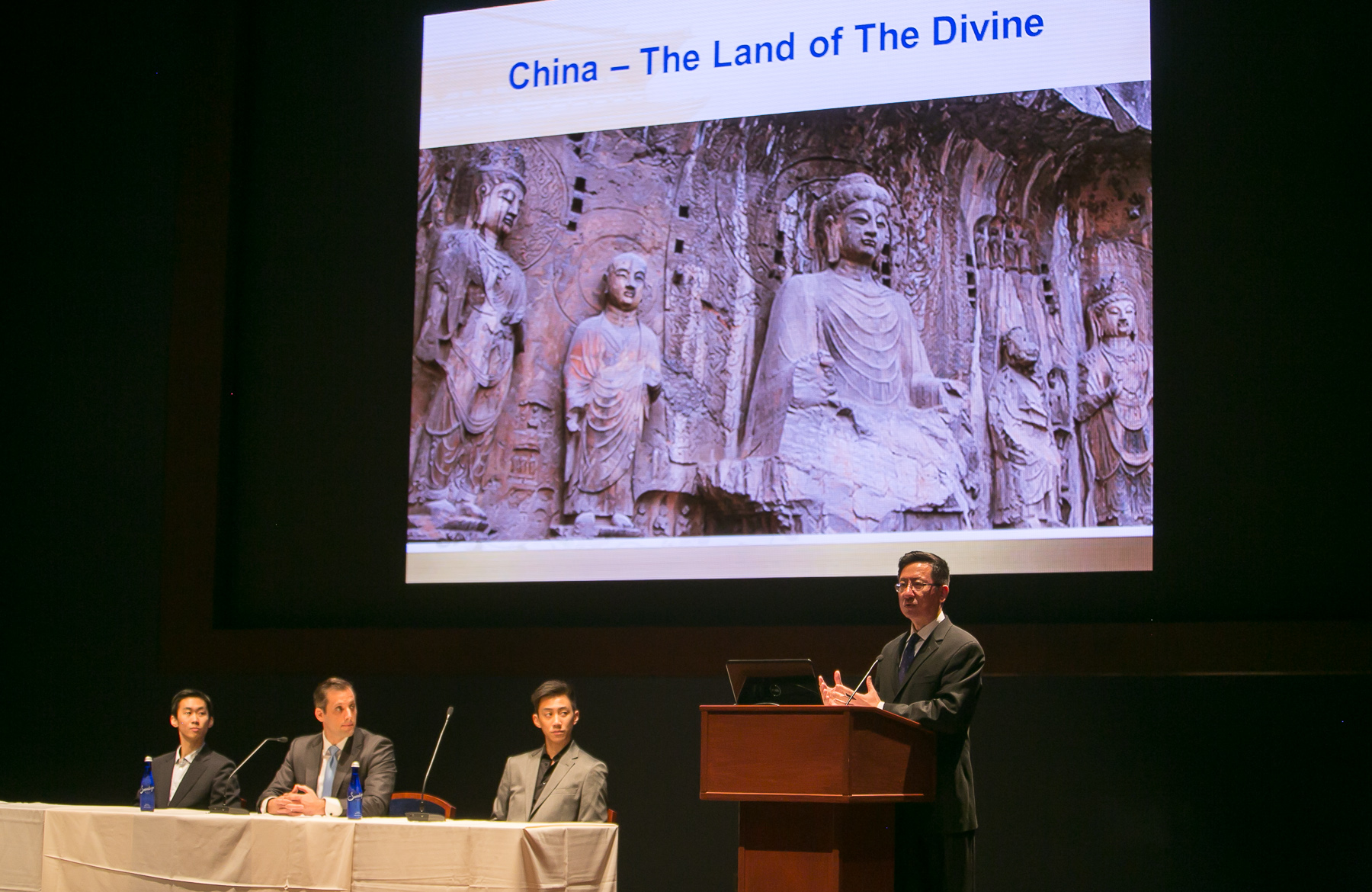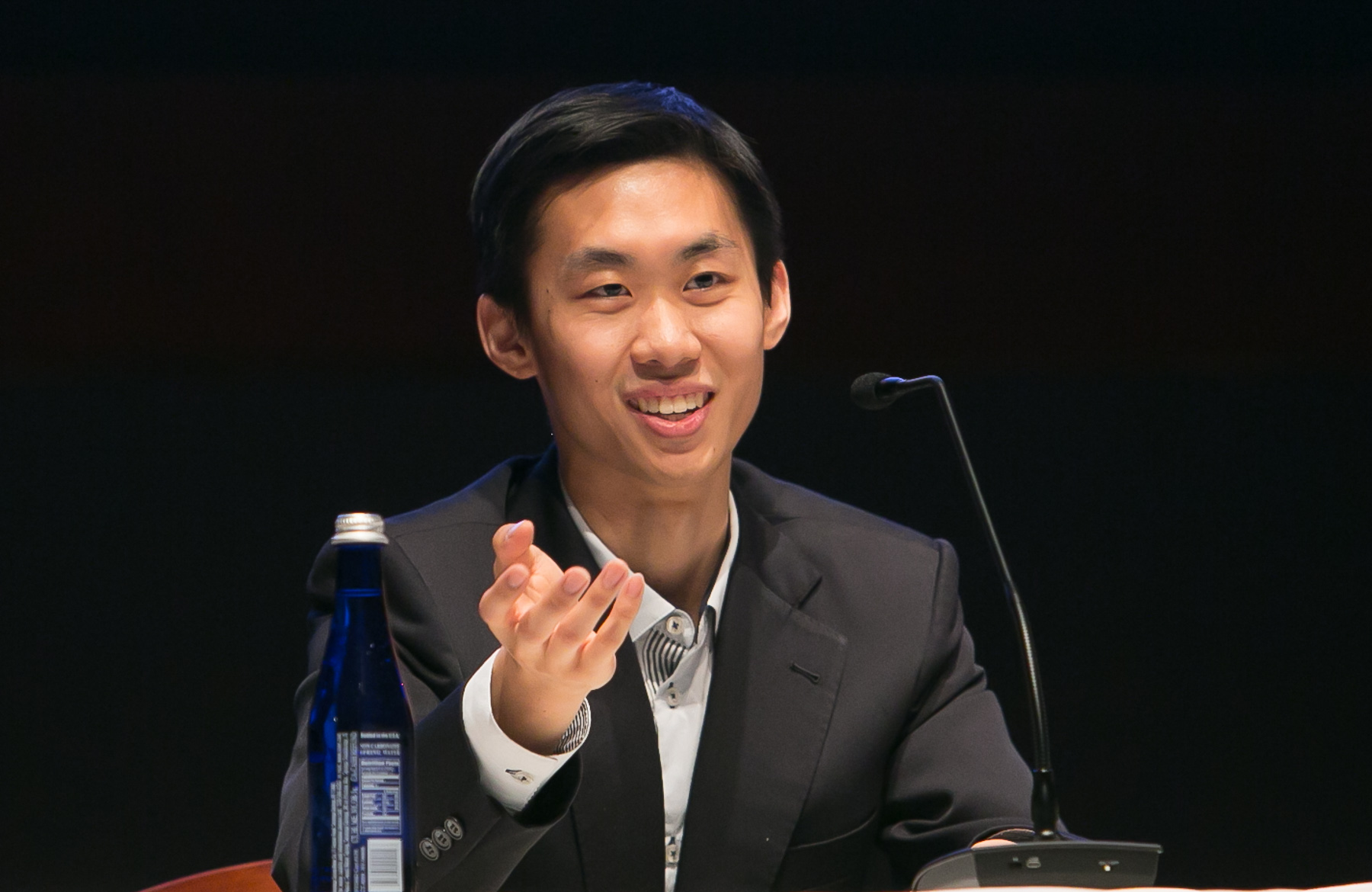Overview: Why is the Communist Party Going After Shen Yun?
Shen Yun’s mission is to revive the essence of 5,000 years of divinely inspired traditional Chinese culture, arts, and values, which have been largely destroyed in China under communist rule.
In ancient times, China was known as the Land of the Divine. Everyone, from emperors to the common people, believed that their culture was a gift from heaven. They lived in harmony with the universe, believed in the oneness of heaven, earth, and humankind, and saw a connection among all things. People believed that good would be rewarded and evil would be punished, valued virtue in everything they did. Traditional Chinese culture embraced these principles for thousands of years.
But the Chinese Communist Party (CCP) advocates struggle against nature and man. It sees this culture as a threat to its power, and for decades it has tried to destroy it, or sometimes co-opt it, and replace it with its own communist culture. It nearly succeeded.
Today, although one can still find traces of traditional Chinese culture in mainland China, it is no longer mainstream and the underlying spiritual essence is mostly lost. Many consider today’s China as a country without a soul, a society with degenerated moral standards. The persecution of Falun Gong, a Buddha school qigong practice deeply rooted in traditions of spiritual self-cultivation, is yet another episode in Beijing’s ongoing war against traditional Chinese culture.
Each Shen Yun show includes about 20 numbers, mostly depicting ancient legends and folk dances. In each performance, there are a couple of dance pieces that also depict the persecution of Falun Dafa in China. As Shen Yun revives traditional Chinese culture, Shen Yun artists also want to help audiences understand how traditional culture was destroyed, and to demonstrate the sacrifices of those who are reviving that lost culture today.
While the persecution serves as context, what is typically highlighted in those two dance pieces is the power of the human spirit, compassion, courage, and desire for freedom in the face of adversity. Many audience members report finding these pieces especially touching and inspiring. This may not be surprising, as tales of the human spirit overcoming adversity have long been a favorite topic in art, film, and drama in the West. In one prominent example, the musical The Sound of Music features the von Trapp family’s escape to freedom from Nazi persecution.
Dual Fears
Despite Shen Yun’s international acclaim, Beijing has felt threatened by it for two reasons.
1. The CCP fears its persecution against Falun Gong will become more widely known.
The regime has invested significant resources to prevent information about Falun Gong and the abuse suffered by practitioners, including deaths in custody, from reaching Chinese and international audiences. Academic and NGO studies consistently report Falun Gong being among the most censored topics in China and a common trigger for government reprisals against foreign media.
2. Shen Yun’s success undermines CCP efforts to legitimize its rule via a monopoly on Chinese culture.
The Communist regime has been telling the Chinese people for years that there is no China without the Communist Party. So much so that they associate the Chinese government with the concept of China.
Clearly this is false. China has thousands of years of history without communism. But the government has staked its legitimacy on Chinese people believing that it is the protector of Chinese culture. As part of that, China has been sending art troupes abroad to perform.
These programs have been greatly outshined by the success of Shen Yun. Why do some Chinese fly to the United States to see Shen Yun? Because they cannot see it, or anything like it, in China. Shen Yun’s success outside of China demonstrates to Chinese people that the true essence of Chinese culture is not something the Communist Party can give them.
One top art official in China even begrudgingly acknowledged the success and high caliber of Shen Yun’s performances, and accused the government of ruining Chinese culture. His comments were reported in a 2013 South China Morning Post article, titled, “State-funded arts troupes fail to shine against Falun Gong rivals abroad.[1]“ This makes it hard for the CCP to claim it is the guardian of Chinese civilization and the legitimate ruler of China.
CCP Tactics
The CCP has tried every possible means to sabotage Shen Yun shows. This website has documented at least 70 incidents in 25 countries.[2] The tactics used range from cyber-attacks against Shen Yun’s ticketing website, to hiring local thugs to slash Shen Yun’s bus tires, to mobilizing online commenters to post negative reviews about Shen Yun. They even organize people to pose as Falun Gong practitioners to send letters to theaters with delirious, nonsensical content in order to give the venues a negative impression of Shen Yun and Falun Gong.
In January 2017, China Daily paid inserts in several major newspapers, including the Wall Street Journal,[3] the Washington Post,[4] the Telegraph in U.K., and Fairfax Media in Australia, all carried an article attacking Shen Yun.
The CCP also uses economic interests to seduce or threaten foreign governments in an attempt to cancel Shen Yun’s performing contracts at state-owned or affiliated venues. This has occurred in Greece, South Korea,[5] Ecuador, Thailand, Vietnam, Hong Kong,[6] Russia, and Ukraine,[7] causing significant financial losses to Shen Yun.
Chinese embassies and consulates are also known to have harassed Shen Yun and pressured theaters not to sign a contract with Shen Yun or to cancel existing ones in many other countries,[8] including Japan,[9] France, Belgium, Spain, Germany, the Netherlands, Italy, Denmark, Sweden, Finland, England, Ireland, Scotland, Romania,[10] Moldova,[11] Czech, Australia, New Zealand, Canada and Malaysia, as well as in cities throughout the United States.
In this context, Shen Yun has recently encountered difficulties securing the opportunity to perform at opera houses in some European countries. These opera houses, which are most suitable for the Shen Yun performances both in terms of their reputation and stage requirements, are all state-owned or affiliated.
[1] South China Morning Post: State-funded arts troupes fail to shine against Falun Gong rivals abroad
[2] See Incidents and Evidence
[3] The Epoch Times: Paid Insert in Wall Street Journal Carries Chinese Propaganda
[4] The Epoch Times: Washington Post: Arm of Beijing’s Grand Propaganda Strategy?
[5] The Diplomat: The Long Arm of Chinese Censorship Reaches South Korea
[6] U.S. State Department Country Reports on Human Rights Practices for 2012: China
[7] U.S. State Department 2010 International Religious Freedom Report: Ukraine
[8] U.S. State Department 2015 Report on International Religious Freedom: China
[9] U.S. State Department 2012 International Religious Freedom Report: Japan
[10] U.S. State Department 2010 International Religious Freedom Report: Romania
[11] U.S. State Department 2010 International Religious Freedom Report: Moldova





